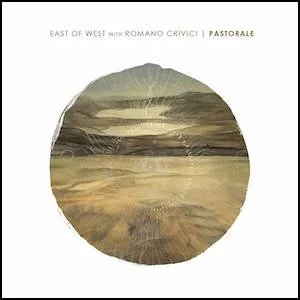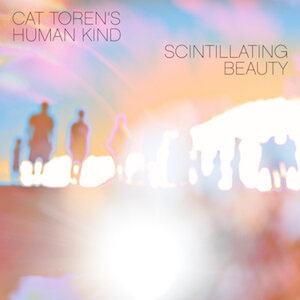Label: 4000 Records, 2025
Personnel - Philip Griffin: oud; Goran Gajić: double bass; Malindi Morris: percussion; Romano Crivici: piano.
East of West, a world jazz trio based in Brisbane, Australia, has a new record, Pastorale, where they infuse each of the six tunes with pictorial vividness. Featured on piano here is Australian pianist Romano Crivici—also a contemporary classical violinist and leader of the Elektra String Quartet—who adds a gorgeous touch to the jazz-meets-Balkan/Mediterranean influences of the trio, led by Bosnian-born bassist and main composer Goran Gajić. Oud player Philip Griffin and percussionist Malindi Morris complete the lineup.
“Where Is Your Accent From” sets an inviting tone, opening with an oud introductory section before an arpeggiated piano riff and ‘singing’ bass lines substantiate the whole through colorful layers. Crivici digresses, subtly accompanied by percussion, leading to calm waters and dreamy places before interjecting across a final six-beat cycle vamp where Griffin steps forward, playing the oud with suave grace.
With a deeply evocative world sound, “Quiet Days in West End” unfolds in seven, immersed in tranquility and conveying beauty through the unison theme statement professed by oud, piano, and bass. The engagingly propulsive “Small Eyes” flows dramatically and passionately with metronomic consistency, tied together by bass and percussion with substantial assist from Crivici.
“Takt” initiates its journey like a call-and-response between piano and oud. Crivici and Gajić also communicate assertively within certain passages, and the piece culminates in a crescendo orchestrated in septuple meter. Motif developments are at the core of Gajić’s compositions, and everything is refined to perfection in the title track, “Pastorale”, which came to life in 2016. Its modal tension, serving as foundation, makes the beautiful surface shine even more. Gajić delivers a fine bass solo before taking the piece to a close with his hypnotic arco work.
Fans of world fusion will certainly resonate with East of West’s musical intuition and ethnic sophistication.
Favorite Tracks:
01 - Where Is Your Accent From ► 03 - Small Eyes ► 06 - Pastorale








































